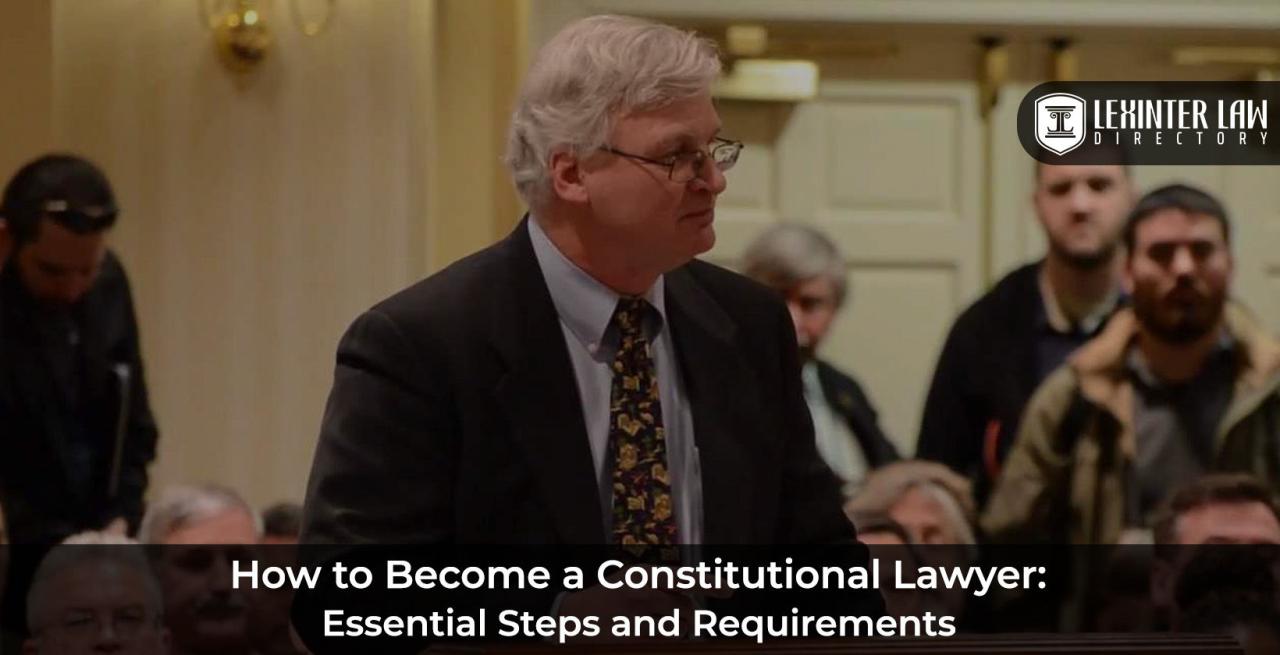
Educational Background

Aspiring constitutional lawyers typically begin their academic journey by pursuing an undergraduate degree in a relevant field. A strong foundation in political science, history, or economics can provide a solid understanding of the principles and structures that underpin constitutional law. These programs often include coursework in constitutional law, civil liberties, and legal reasoning, equipping students with the critical thinking and analytical skills necessary for success in the field.
Graduate Programs
After completing their undergraduate studies, constitutional lawyers typically pursue a Juris Doctor (J.D.) degree. This three-year program provides a comprehensive understanding of the American legal system and prepares students for legal practice. The J.D. curriculum includes core courses in constitutional law, civil procedure, and legal writing, as well as specialized courses in constitutional interpretation, federal courts, and civil rights. Some students may also choose to pursue a Master of Laws (LL.M.) degree in constitutional law, which offers advanced study and research opportunities in the field.
Legal Experience

Practical legal experience is crucial for aspiring constitutional lawyers. Internships, clerkships, and pro bono work offer invaluable opportunities to apply legal principles in real-world settings.
Types of Legal Settings
Constitutional law is practiced in diverse settings, including:
- Law firms specializing in constitutional litigation
- Government agencies, such as the Department of Justice
- Non-profit organizations dedicated to constitutional advocacy
Specialized Knowledge and Skills

Aspiring constitutional lawyers should possess a deep understanding of the core areas of constitutional law, including civil liberties, equal protection, and due process. These areas encompass the fundamental rights and freedoms guaranteed by the Constitution, and a thorough grasp of their legal principles is essential for effective representation in constitutional law cases.
Developing strong analytical, research, and writing skills is also crucial for constitutional law practice. The ability to analyze complex legal issues, conduct thorough research, and present cogent arguments in written form is essential for success in this field.
Analytical Skills
Constitutional law involves interpreting and applying complex legal principles to real-world situations. Aspiring lawyers must possess strong analytical skills to identify the relevant legal issues, analyze the facts of a case, and apply the appropriate legal principles to reach sound conclusions.
Research Skills
Constitutional law practice requires a thorough understanding of legal precedents and scholarly commentary. Aspiring lawyers must develop strong research skills to locate and analyze relevant legal materials, including case law, statutes, and academic articles.
Writing Skills
Constitutional lawyers must be able to communicate their legal arguments clearly and persuasively in written form. They must be able to draft legal briefs, motions, and other documents that effectively advocate for their clients’ interests.
Professional Development
Constitutional law is a rapidly evolving field, so it’s essential for practitioners to stay abreast of the latest developments. Continuing legal education (CLE) courses and professional organizations play a crucial role in this process.
CLE courses provide attorneys with opportunities to learn about new developments in constitutional law, earn CLE credits, and network with other professionals in the field. Many law schools and bar associations offer CLE courses on various aspects of constitutional law, including civil rights, criminal procedure, and First Amendment law.
Conferences, Workshops, and Publications
Conferences and workshops are another great way to stay up-to-date on constitutional law developments. These events typically feature presentations by leading experts in the field, as well as opportunities for attendees to ask questions and engage in discussions. Some popular conferences and workshops on constitutional law include the American Constitution Society’s National Convention, the Federalist Society’s National Lawyers Convention, and the American Bar Association’s Section of Civil Rights and Social Justice Annual Meeting.
In addition to conferences and workshops, there are a number of publications that can help constitutional lawyers stay informed about the latest developments in the field. These publications include law reviews, journals, and newsletters. Some of the most respected publications on constitutional law include the Harvard Law Review, the Yale Law Journal, and the Stanford Law Review.
Career Outlook
Constitutional lawyers enjoy a diverse range of career opportunities, spanning private practice, government, academia, and non-profit organizations.
Private Practice
In private practice, constitutional lawyers often specialize in litigation, representing clients in cases involving constitutional issues before federal and state courts. They provide legal counsel to individuals, corporations, and organizations on constitutional matters, such as free speech, due process, and equal protection.
Government
Constitutional lawyers play a crucial role in government, serving as advisors to legislators, executives, and judges on constitutional issues. They draft legislation, provide legal opinions, and represent the government in court cases involving constitutional challenges.
Academia
Constitutional law scholars conduct research, publish articles and books, and teach courses on constitutional law at law schools and universities. They contribute to the development of legal theory and provide expert analysis on constitutional issues.
Non-Profit Organizations
Constitutional lawyers working for non-profit organizations advocate for constitutional rights and provide legal assistance to marginalized communities. They engage in litigation, policy advocacy, and public education to promote constitutional values.
Challenges and Ethical Considerations
Constitutional lawyers face unique ethical challenges due to the sensitive nature of their work. Conflicts of interest can arise when representing clients with opposing interests or when personal beliefs conflict with professional responsibilities.
Maintaining high ethical standards is paramount for constitutional lawyers. Adhering to professional codes of conduct, such as the American Bar Association’s Model Rules of Professional Conduct, ensures impartiality and protects the integrity of the legal system.
Ethical Considerations
* Avoiding conflicts of interest by carefully screening potential clients and disclosing any potential conflicts upfront.
* Balancing personal beliefs with professional responsibilities by recognizing the distinction between personal opinions and legal obligations.
* Maintaining confidentiality and protecting client information, even in cases where personal beliefs may differ.
* Upholding the rule of law and promoting justice, regardless of personal biases or political affiliations.





